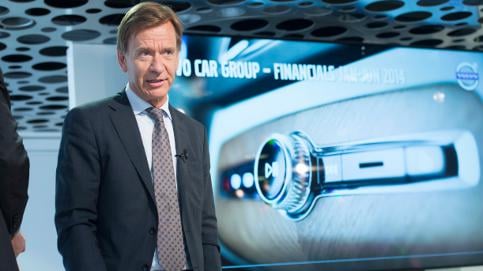Volvo Cars presented an upbeat half-yearly report that cited "solid" demand for the brand among Chinese buyers.
The Gothenburg-based manufacturer bucked dismal sales trends in the global auto industry with a 15-percent hike in turnover to 64.78 billion kronor ($9.39 billion).
Net profits was 535 million kronor in the first six months of the year compared to a 778 million kronor loss for the same period in 2013.
Sales in vehicle terms grew by 9.5 percent year on year to 229,013 units, compared to 209,117 for the same period in the previous year.
"This first half result is both solid and encouraging," chief executive Håkan Samuelsson said in a statement.
The group doubled its previous sales outlook for the year to 10 percent, partly due to strong demand from China where sales grew by 34.4 percent, largely offsetting a 10 percent fall in US sales.
"We are growing our presence in China and we expect to sell at least 80,000 cars there this year," said Samuelsson, just a week ahead of the formal launch of the XC90 SUV — Volvo's first fully new car since being bought by Zhejiang Geely Holding from Ford Motor Company in 2010.
Apart from banking in the growth of the Chinese car market where the group has three factories, it also said a "revival plan" was underway with new management in the US, where the Swedish brand has no manufacturing base.
In Europe, Volvo said the market showed "signs of recovery and growth", with particularly good results in the UK, Germany and the Netherlands.
Nonetheless, the group's operating profit is expected to stagnate in 2014 "due in part to an expected negative impact from exchange rates and the continued investment program".
Volvo Cars was separated from the Volvo Group's truck, engine and construction machinery business in 1999 and employs 22,300 globally.



 Please whitelist us to continue reading.
Please whitelist us to continue reading.
Member comments